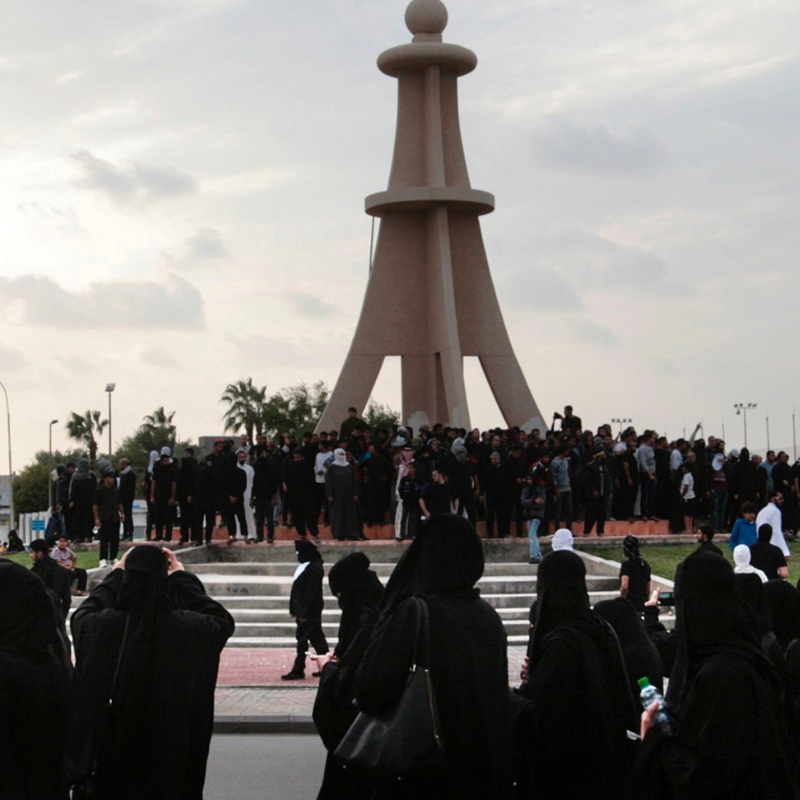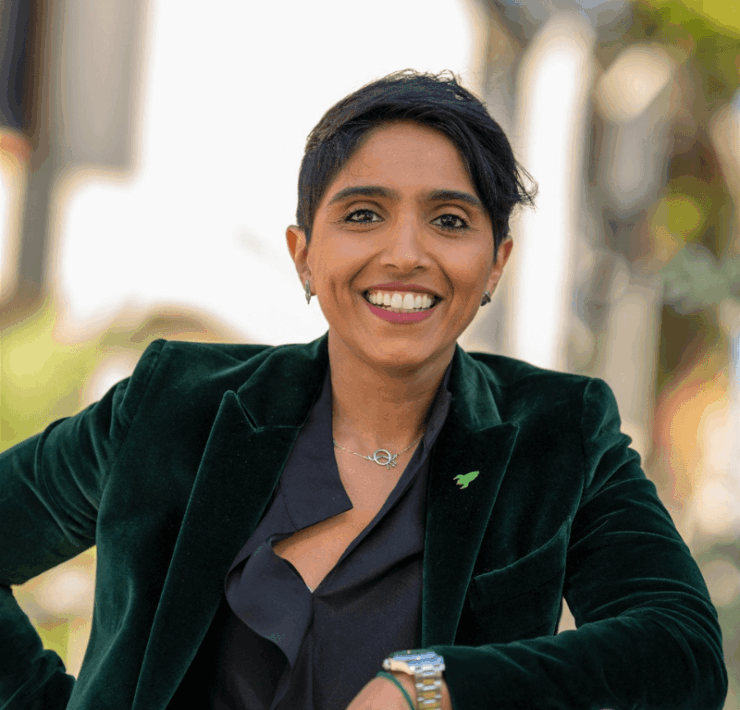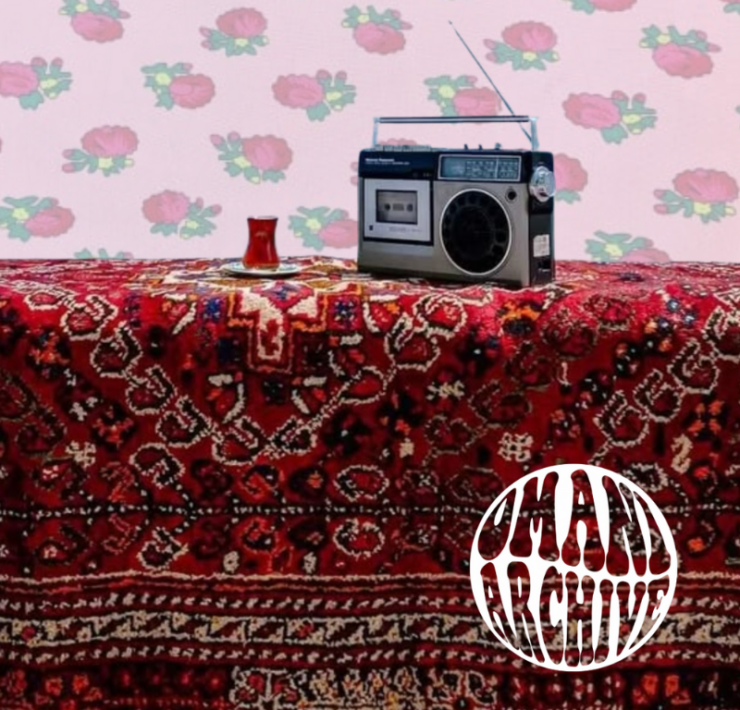Two people have been killed in the Shia-majority Eastern province of Saudi Arabia, sparking violence between citizens and the state and a sectarian war of words online.
A two-year-old boy and a Pakistani expatriate were shot dead on Friday during clashes between gunmen and security services in Qatif in the Eastern Province of Saudi Arabia. The incident took place in Al-Masourah, as gunmen opened fire on workers who were beginning the demolition of the neighbourhood as part of plans for its development.
Residents of Al-Masourah – a relatively poor neighbourhood in the district of Awamiyah – have received compensation from the Saudi government to leave their homes in order for the area to be dismantled and rebuilt. Narrow streets and alleyways make Al-Masourah difficult to police, making it an ideal place for criminals to hide out from the security services. The Saudi government has therefore cited security concerns as the reason for its demolition.
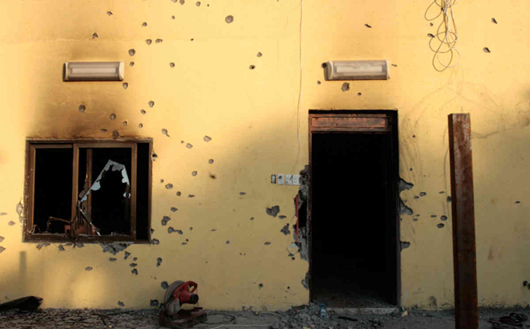 A bullet-ridden building in Awamiyah (image: Coastal Digest)
A bullet-ridden building in Awamiyah (image: Coastal Digest)
However, some residents have objected to the demolition and refused to leave on the grounds of Awamiyah’s historical and religious significance for the Shia. Others have gone as far as to suggest that the remodelling of Awamiyah is part of a broader social engineering project to redefine the demography of the Eastern Province, which is home to between one and two million Saudi Shia.
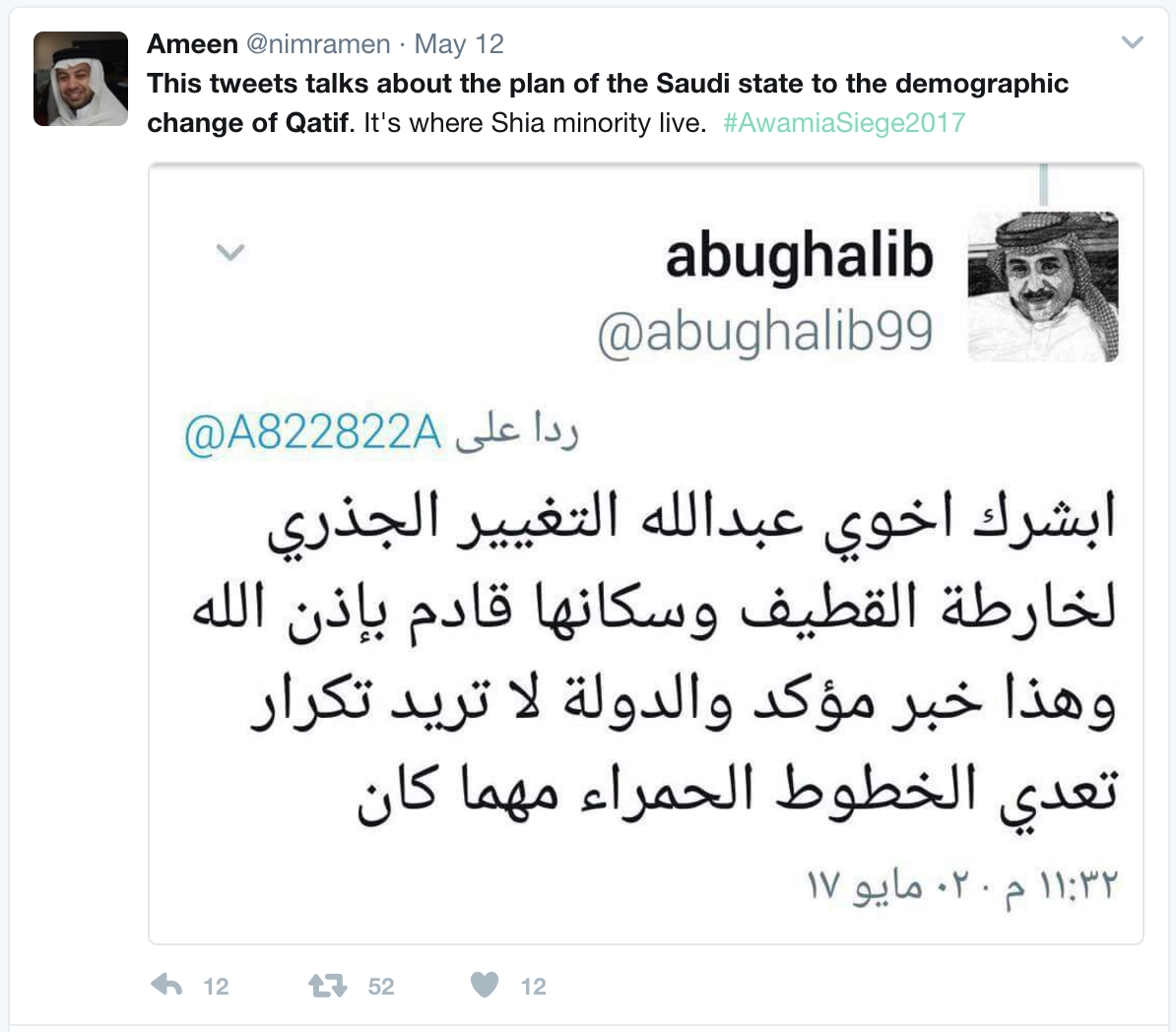
Saudi Arabia is a majority-Sunni Muslim country, although it is home to a Shia minority that constitutes 10-15% of its population of 31.5 million. The dominant school of Islam in the Kingdom, Wahhabism, preaches hostility towards the Shia, who have long complained of systematic marginalisation and discrimination at the hands of the government and Sunni nationals.
One young woman described the social exclusion she experienced growing up as a Shia in the Eastern Province. She revealed that many of her Shia friends prefer hiding their sectarian identity for fear of bullying, and she recalls losing many friends at school after they “found out” she was Shia. She said that it is normal for her fellow citizens to perceive her as a traitor, conspiracist or spy and it is common to hear “Go back to Iran!” – despite the lack of a shared heritage between Iranians and most residents of the Eastern Province. She also spoke of the medieval stereotypes and rumours that still prevail in Saudi society, such as the myth that the Shia put spells on their food (she has experienced people refusing to eat food she offered in her workplace on multiple occasions).
It is difficult to know exactly what is going on in Awamiyah. There is no mention of the weekend’s events on the websites of major Western and English language news outlets including the BBC, CNN and Al Jazeera. Meanwhile Saudi sources present conflicting perspectives of the situation and little information is coming out of Awamiyah itself, which is currently occupied by the security services. Official Saudi media outlets have reported that these forces are in the process of rooting out terrorists and securing Al-Masourah, while other anonymous Twitter accounts claim that the area is under siege.
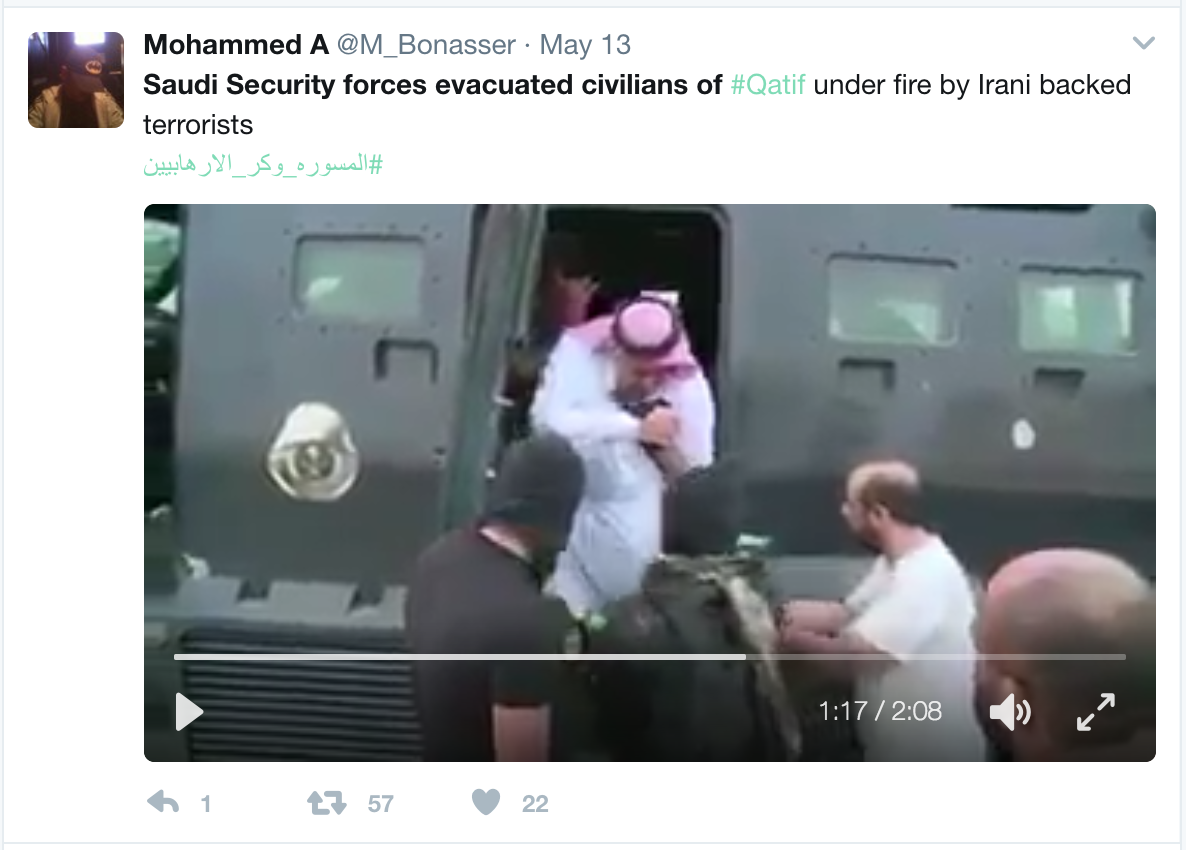
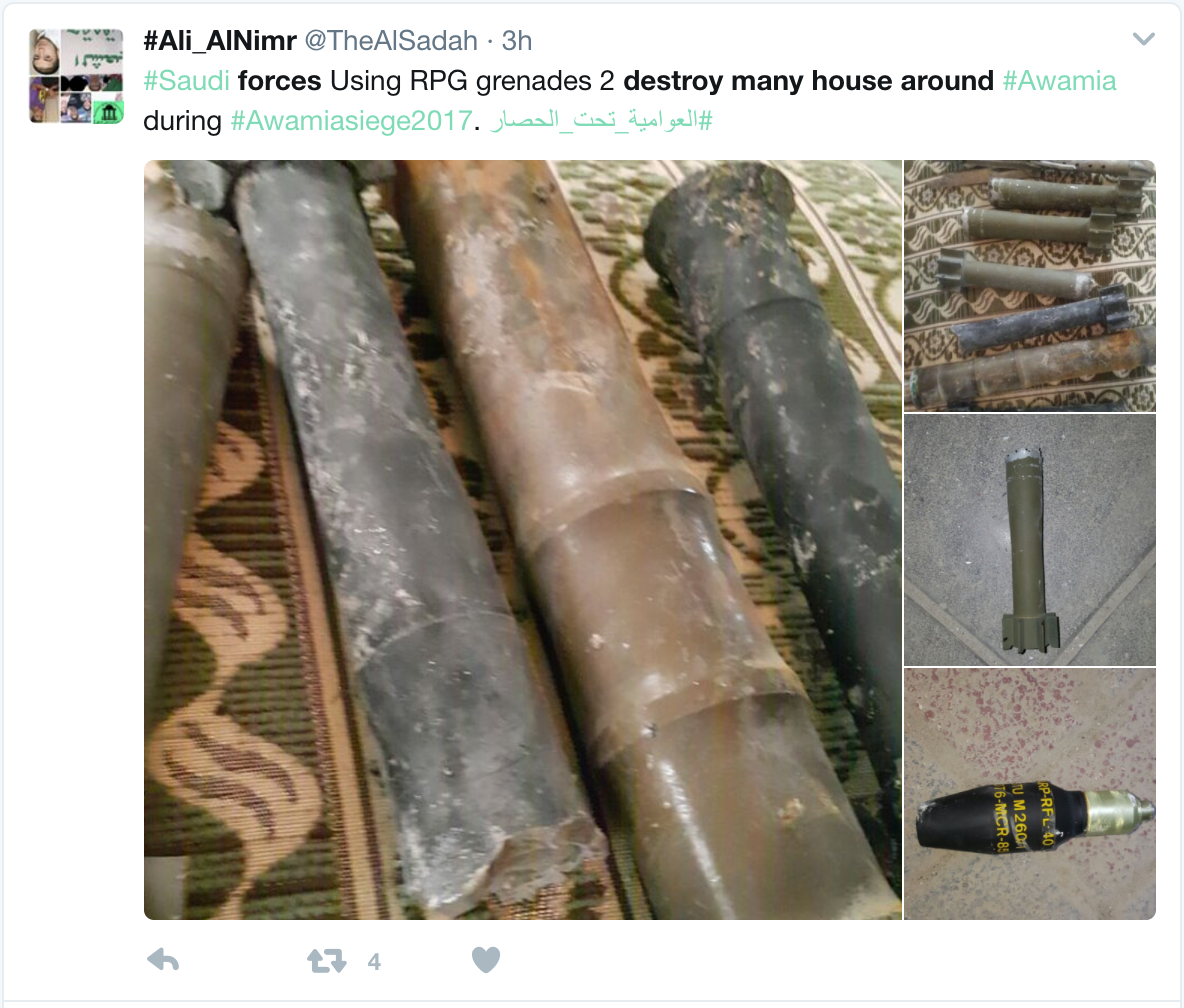
The incident also feeds into the regional geopolitical struggle between Saudi Arabia and Iran, as the Saudi government has cited its concerns of Iranian interference in the eastern province. Saudi and Iranian official media coverage of the incident differ significantly, with the Saudi government emphasising the terrorist nature of the attack, while Iran has blamed the outbreak of violence on the Saudi security services alone. These two conflicting narratives are being circulated widely on Twitter.
Twitter itself has become a key platform for airing grievances and has played a significant role in the rise of sectarian tensions in Saudi Arabia in recent years. However, its usefulness in providing an authentic insight into the situation on the ground has become limited, due to the proliferation of fake accounts propagating biased sectarian narratives on both sides of the Sunni-Shia divide.
 Translation: “#AlAwamiya_Terrorists: Arab Shia are conspiracists, a dagger in the back of Arabs and Islam, terrorist Shia zoroastrians sons of prostitution”
Translation: “#AlAwamiya_Terrorists: Arab Shia are conspiracists, a dagger in the back of Arabs and Islam, terrorist Shia zoroastrians sons of prostitution”
In the wake of the events in Qatif, a barrage of suspicion and abuse has been posted on Twitter directed at the Shia of the Eastern Province. The more offensive of this content has come from the multitude of anonymous anti-Shia accounts, some – if not many – of which are likely fake. However, even public figures such as members of the Saudi royal family have engaged in this narrative to some degree.
 Translated Tweet posted by Prince Khaled Al-Saud: “My message to the wise in Qatif: Whoever has proven to be hiding or cooperating with the traitors of religion and the country has no one to blame but himself, no more words.”
Translated Tweet posted by Prince Khaled Al-Saud: “My message to the wise in Qatif: Whoever has proven to be hiding or cooperating with the traitors of religion and the country has no one to blame but himself, no more words.”
What is worrying, says one Saudi Shia, is the lack of comment from Saudi moderates, who have largely remained silent on the issue. Criticism of the government and the Wahhabi religious establishment has increased in recent years as many Saudis have sought to distance themselves from the extremist ideology of groups like the so-called Islamic State (IS).
This has created space for liberals to speak out against the government and appears to signal a shift away from more extreme, exclusionary interpretations of Islam. But the lack of a moderate response to the events in Qatif begs the question of how genuine this shift really is, and whether the liberal vision for the future of Saudi Arabia includes protecting the rights of the Shia.

